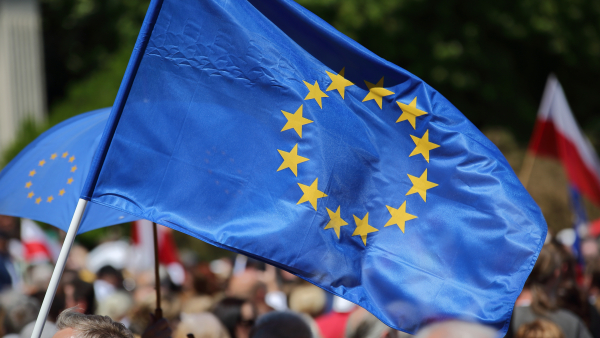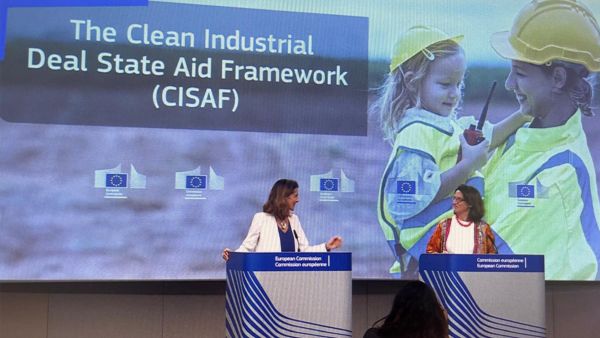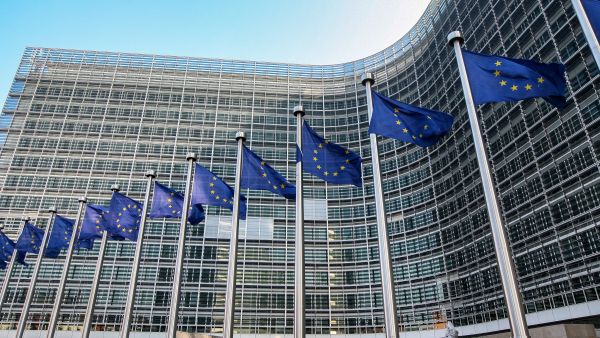There is a hell on earth. It is called Syria. The fact that millions of people try to flee from that hell is understandable. I would do the same. The fact that they try to stay as close to their home as possible is also understandable. And it is self-evident that they try to find safe shelter somewhere else if that doesn't work.
Millions of Syrians have left their country and stay in neighbouring countries such as Lebanon, Jordan and Turkey, sometimes for many years. Some are in big refugee camps, but many more are in ordinary cities and villages. They hope for a swift return. But as the war continues, hope fades. Currently there are almost no safe areas left in Syria. More and more people are fleeing. The situation in neighbouring countries offers little or sometimes no hope. So people look for a safe haven in Europe. I would do the same.
The problem will not solve itself. The influx of refugees will not stop as long as the war continues. Much has to be done to end this conflict, and the whole world will have to be involved. Meanwhile, we have to make every effort to manage the flow of refugees, to offer people a safe place to stay, in the region, in the EU and in the rest of the world.
It is a huge problem, but not an impossible one if we are ready to view things differently and take an EU-led approach. The instruments we now use, like the Dublin Regulation, have been partly overtaken by reality. For years, attempts to look away and leave others to solve the problem have failed miserably. For years, Italy and Greece have been sounding the alarm, and for years, countries in the region have been asking for more support. And now everyone has to collectively pick up the pieces. Thankfully we are willing to work on a common solution, even though this is not self-evident and takes tremendous efforts. This is the reason why we have drafted a common Action Plan with Turkey.
Turkey needs the EU to help it to find solutions for the tense situation in the region and provide decent shelter to millions of refugees. The EU urgently needs this decent shelter to be provided, so people can stay in their own region rather than leaving for Europe out of despair, with the risk of falling into the hands of unscrupulous smugglers and finding themselves in an almost uncontrollable situation on the other side of the Mediterranean or Aegean Sea. It is better for everyone, most of all for refugees, that they have the prospect of a smooth arrival in their region, including good opportunities for education for children and access to the labour market for adults. This can become a reality if Turkey and the EU work together. It is more efficient, cheaper and most importantly more humane than the continuation of the current situation that ultimately has a destabilising effect here and in the region. To be clear: this does not mean that no more refugees will come to Europe. As long as the war continues, they will keep coming. But they will come in numbers we can manage if we create better circumstances in Lebanon, Jordan and also in Turkey.
This refugee crisis shows that Turkey and the EU depend on one another to manage the situation. Many find this unsettling, especially because the EU and Turkey have been living independently from each other for years, each consumed by its own troubles. That is why it may look as if the EU has bowed to pressure from Turkey, while the opposite perception is felt in Turkey. Two parties that know they need each other do not need to bow for one another. They just have to make sound agreements on matters that are of common concern. They have to give substance to their desire to solve problems together. With respect for each other's position. That means without demanding concessions on matters of principle, or qualifying our norms and values, let alone letting them go. There is absolutely no need for that.
For far too long, we have cherished the illusion that the misery in Syria is a faraway problem. Because of the refugee crisis everyone now knows just how close it is. In our cities, in our villages, in our streets. It is truly a shame we needed our own crisis for that. Syria is barely a four-hour flight away from Amsterdam. Most Syrians were used to living like us, in circumstances that do not differ from our lives as much as most of us think. With values that are sadly much closer to our own than is often claimed. Ordinary people, with ordinary jobs. They washed their cars on the weekend, played football and visited their families. They went on holiday by the sea or in the hills. They went to parent-teacher meetings, went to the cinema. Then the war came.
It is now the time to think in solutions. EU countries have to live up to their commitments and bring money to the table. Leaders should find the courage to say at home that we cannot solve the problem with an attitude of 'every man for himself'. National governments cannot bury their heads in the sand. Hiding away until all of this is over has been tried and has failed. Doing nothing because economic migrants try to claim the right to asylum is a poor excuse. Economic migrants should go back, refugees should be taken care of, and both matters demand swift and clear action. So what are we to do? Merely lament disaster? Attack each other verbally or even physically? Bring out the worst in ourselves? That's the easy option. You see some politicians eagerly doing it. It is literally and figuratively exhausting. While real solutions take time to build. This is what we should focus on in our movement - building trust, agreements with other countries in the region, agreements with the people coming here who want nothing more than to go back to their own country, who at the same time need to find themselves and their loved ones a proper existence in harmony with us and with their new surroundings - a proper existence for everyone.
Related content
Find out more








